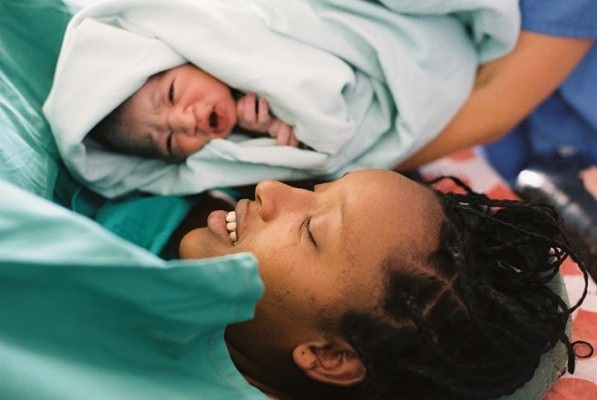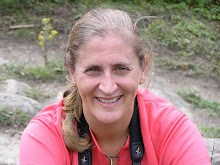February 5th
Although the work in the labour ward is very rewarding, I have been looking for ways to add a more lasting value to maternity and the hospital in general. With this in mind I have agreed to teach a module to the 2nd year students in the Gimbi hospital nursing school. I have to apologise that the module is known as the "OR module" rather than by its full title "Provision of pre, intra & post operative nursing care"- yet another Americanism but entirely understandable as the theatres here are known as the OR (Operating Room).
There are a number of nursing schools in Gimbi and unfortunately some of them work on the principle that if you pay a fee you should get a diploma with no emphasis/requirement that this process involves learning anything. This can result in a poor standard of nurses applying for positions in the hospital and it can be difficult to tell. A good from a bad diploma .I should also point out that the midwives I might have written about in previous blogs are not midwives in the way we think of midwives, but are nurses (usually the brightest and best) who through sponsorship by Maternity Worldwide have been able to do a short course on midwifery to give them more understanding of labour and delivery. Thus having a poor quality of nurses will result in problems finding the midwives of the future for Gimbi.
To try to circumvent this problem the hospital decided to set up it's own nursing school where a better quality of graduate could be guaranteed and through donations specifically for this purpose to Adventist International they are in the process of building a new brand new school although classes have been running for three years in older buildings. The fees charged for the hospital school are low compared to most schools and it is made clear to applicants and to the students at all stages that in order to graduate both attendance and performance are required. The presence of a school also allows the hospital to sponsor people who come to work as practical workers (similar to what are called healthcare assistants in the UK) and are good at their job.
However I am told, there have been stormy times over the past two years with occasional small student rebellions over the high expectations of the school. The last one was over anatomy textbooks provided for each of them by a previous"faringe" lecturer that they were expected to read. It required the head of the hospital to explain to them the reasons for the school wanting them to have real knowledge and skills (the argument is strengthened by the fact that currently Ethiopia is producing a lot of nursing graduates and there are unlikely to be jobs for all of them). A refund was offered to students who wanted to leave. Three students chose to leave and all are known to have enrolled in the worst "diploma for cash" school (where 2-hour lessons last 15minutes) so all in all everyone is happy!
There is a requirement from the Ethiopian Government that the course is taught in English and they also set a detail curriculum (which at this school is followed properly). My module is sixteen 2-hour lessons which as this is not an area where I can "wing" it, require quite a lot of lesson prep but I am learning all sorts of things I probably should have known about such as infection control and other topics. Teaching the students here is very hard work. Their education to this point has been "Victorian- style" i.e. teacher stand by black-board and writes list, student memorises list and recounts with no requirement for understanding or any encouragement of any sort of creative thinking or problem solving. Unfortunately being a good nurse doesn't require list memorisation but the ability to problem solve and particularly to do this in a rapid way and also in the face of a rapidly evolving clinical deterioration. I am drawing on every resource from my "Teaching the teachers" courses to try to engage them, get them to interact and to engender thinking behaviour rather than rote learning. Add to this the very mixed ability in English and sometimes the problems can feel insurmountable but I am not one to be beaten and I take solace from the fact that although I am not sure how much is going in, they all in their different ways seem to be enjoying the classes (done 4 now) and the attendance is better than I would expect from students in the UK.
If I learn nothing else it will be an appreciation of my medical students in London who can be persuaded to think and actually object to having to rote learn. It has also reminded to me that bad handwriting looks even worse in cheap chalk on a blackboard.


Dear Leonie,
ReplyDeleteThank you very much for your fantastic letters! I feel very responsible for not answering for so long. I know how it is when communications are limited. Time is flying here but I believe that it is different for you there. It is very exciting to read your stories. I tried to write some comments while I was at work but the access is denied, so now I am finally doing it at home. London hasn’t change yet and unlikely will. I hope that the others are much better than me; certainly I know that everybody at HBRC is reading your wonderful stories. It must be an extraordinary experience for you; I assume that many things are like in old textbooks. I really admire what you are doing. Also, I have to admit that I am jealous about your forced diet! I can imagine how super –truper slim you will be once returning to an obese Europe! I feel guilty having a glass (or 2) of red wine and piece of red meet tonight! I think that everybody is expecting a lecture cycle about your practice in Ethiopia after your return but also we are dying to have you back here in Britain. I had a wonderful experience given me by Lindsey; I was in Kuwait lecturing for 5 days. It was my first time in Arabic country and first time to be a part of international speaker group (others were form States). We had a great time, I learned a lot, I enjoyed lecturing, teaching. We had extraordinary service there. Only minus- no sip of wine or anything alcoholic as it is illegal in Kuwait, the same on plane. I hope to move at some point to my new apartment but so far there still some paperwork needs to be done, I do not have an exchange date jet but hopefully in due course I will. I wish you a lot of strengths, continuing with positive approach. I hope to be supportive by writing some messages from this continent, if it helps and if you are not overwhelmed by such notes.
With best regards, lots of love,
Vita